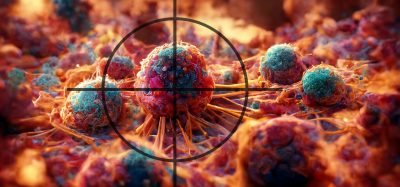Are we on our way to a one-time treatment for HIV?
Posted: 15 June 2022 | Ria Kakkad (Drug Target Review) | 1 comment
Researchers have developed a new technology that could offer treatment for HIV infection through a single injection.


A new study from Tel Aviv University, Israel could offer a new and unique treatment for AIDS which may be developed into a vaccine or a one-time treatment for patients with HIV. The study examined the engineering of type B white blood cells in the patient’s body to secrete anti-HIV antibodies in response to the virus. The results were recently published in Nature.
The developed one-time injection utilises type B white blood cells that would be genetically engineered inside the patient’s body to secrete neutralising antibodies against the HIV virus that causes the disease.
Research leader, Dr Adi Barzel explained: “until now, only a few scientists, and we among them, had been able to engineer B cells outside of the body, and in this study, we were the first to do this in the body and to make these cells generate desired antibodies. The genetic engineering is done with viral carriers derived from viruses that were engineered so as not to cause damage but only to bring the gene coded for the antibody into the B cells in the body. Additionally, in this case we have been able to accurately introduce the antibodies into a desired site in the B cell genome. All model animals who had been administered the treatment responded and had high quantities of the desired antibody in their blood. We produced the antibody from the blood and made sure it was actually effective in neutralising the HIV virus in the lab dish.”
The genetic editing was done with a CRISPR, as Alessio Nehmad explained, “we incorporate the capability of a CRISPR to direct the introduction of genes into desired sites along with the capabilities of viral carriers to bring desired genes to desired cells. Thus, we are able to engineer the B cells inside the patient’s body. We use two viral carriers of the AAV family, one carrier codes for the desired antibody and the second carrier codes the CRISPR system. When the CRISPR cuts in the desired site in the genome of the B cells it directs the introduction of the desired gene: the gene coding for the antibody against the HIV virus, which causes AIDS.”
Currently, the researchers explained, there is no genetic treatment for AIDS, so the research opportunities are vast. Dr Barzel concluded: “we developed an innovative treatment that may defeat the virus with a onetime injection, with the potential of bringing about tremendous improvement in the patients’ condition. When the engineered B cells encounter the virus, the virus stimulates and encourages them to divide, so we are utilising the very cause of the disease to combat it. Furthermore, if the virus changes, the B cells will also change accordingly in order to combat it, so we have created the first medication ever that can evolve in the body and defeat viruses in the ‘arms race’.
Based on this study we can expect that over the coming years we will be able to produce in this way a medication for AIDS, for additional infectious diseases and for certain types of cancer caused by a virus, such as cervical cancer, head and neck cancer and more”.
Related topics
Antibodies, CRISPR, Vaccine
Related conditions
HIV/AIDS
Related organisations
Tel Aviv University
Related people
Alessio Nehmad, Dr Adi Barzel









Very interest news, God will give Dr. Adi Barzel and his team more wisdom to save the life of people in the world living with the deadly diseases called HIV/AIDS.The point would to know is that, how can person living out side from Israel have access to that injection? Did the injection already started in Israel? I can inform one of my close friend to do it there if it is on progress.
These are point i would like to know.
Thank a lot.
Best Regard-
David Chol